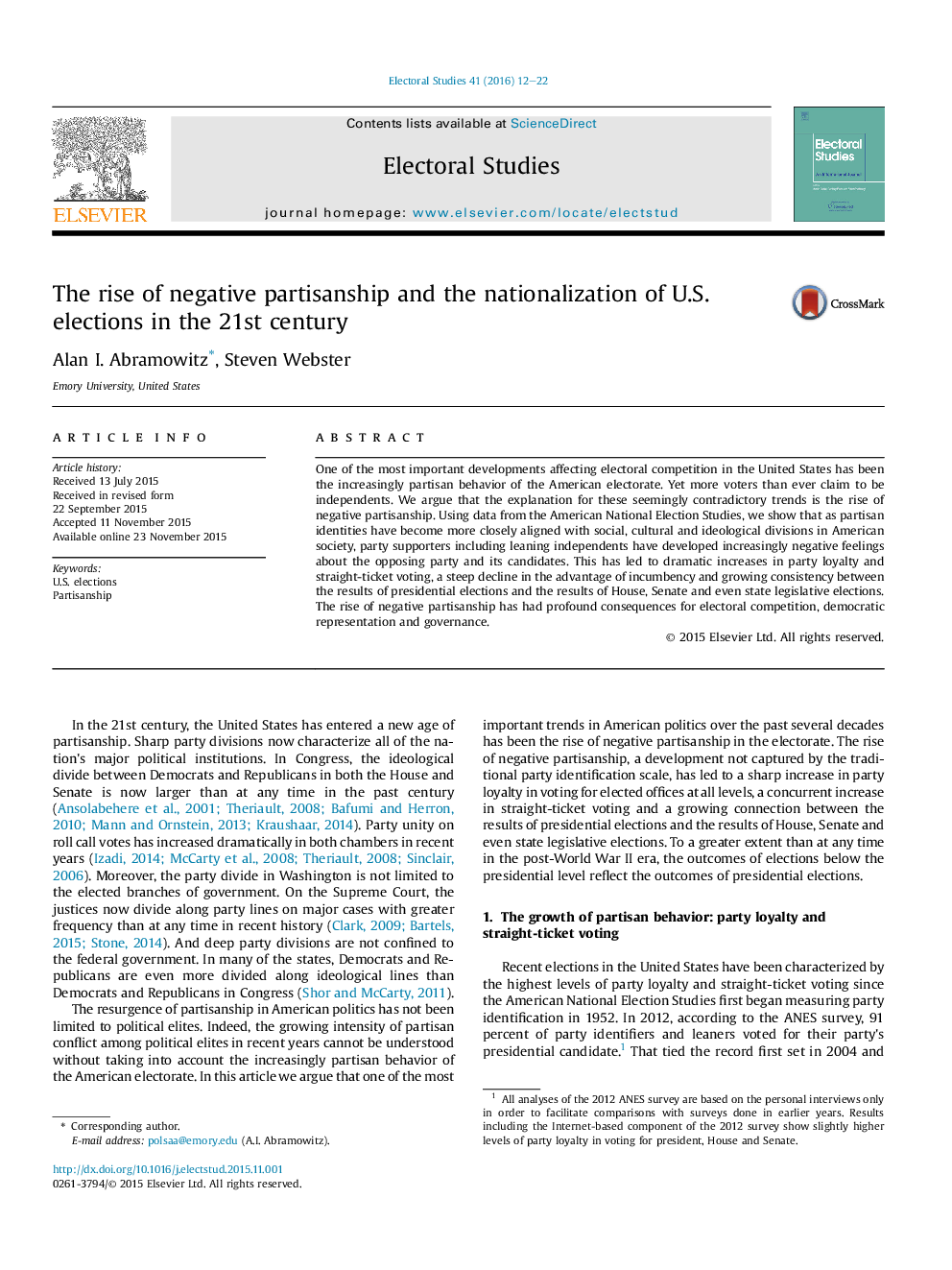| Article ID | Journal | Published Year | Pages | File Type |
|---|---|---|---|---|
| 7463633 | Electoral Studies | 2016 | 11 Pages |
Abstract
One of the most important developments affecting electoral competition in the United States has been the increasingly partisan behavior of the American electorate. Yet more voters than ever claim to be independents. We argue that the explanation for these seemingly contradictory trends is the rise of negative partisanship. Using data from the American National Election Studies, we show that as partisan identities have become more closely aligned with social, cultural and ideological divisions in American society, party supporters including leaning independents have developed increasingly negative feelings about the opposing party and its candidates. This has led to dramatic increases in party loyalty and straight-ticket voting, a steep decline in the advantage of incumbency and growing consistency between the results of presidential elections and the results of House, Senate and even state legislative elections. The rise of negative partisanship has had profound consequences for electoral competition, democratic representation and governance.
Keywords
Related Topics
Social Sciences and Humanities
Social Sciences
Geography, Planning and Development
Authors
Alan I. Abramowitz, Steven Webster,
